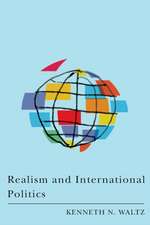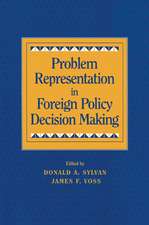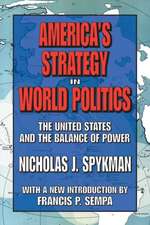Global Norms with a Local Face: Rule-of-Law Promotion and Norm Translation: Cambridge Studies in International Relations, cartea 143
Autor Lisbeth Zimmermannen Limba Engleză Hardback – 2 aug 2017
Din seria Cambridge Studies in International Relations
-
 Preț: 251.50 lei
Preț: 251.50 lei -
 Preț: 217.42 lei
Preț: 217.42 lei -
 Preț: 192.33 lei
Preț: 192.33 lei -
 Preț: 228.05 lei
Preț: 228.05 lei -
 Preț: 270.94 lei
Preț: 270.94 lei -
 Preț: 215.30 lei
Preț: 215.30 lei - 14%
 Preț: 557.56 lei
Preț: 557.56 lei -
 Preț: 272.95 lei
Preț: 272.95 lei -
 Preț: 274.79 lei
Preț: 274.79 lei -
 Preț: 216.58 lei
Preț: 216.58 lei -
 Preț: 233.16 lei
Preț: 233.16 lei -
 Preț: 162.75 lei
Preț: 162.75 lei -
 Preț: 389.42 lei
Preț: 389.42 lei -
 Preț: 166.57 lei
Preț: 166.57 lei -
 Preț: 230.28 lei
Preț: 230.28 lei -
 Preț: 234.51 lei
Preț: 234.51 lei -
 Preț: 216.95 lei
Preț: 216.95 lei -
 Preț: 354.50 lei
Preț: 354.50 lei - 11%
 Preț: 594.49 lei
Preț: 594.49 lei -
 Preț: 226.35 lei
Preț: 226.35 lei -
 Preț: 207.37 lei
Preț: 207.37 lei -
 Preț: 275.24 lei
Preț: 275.24 lei -
 Preț: 295.22 lei
Preț: 295.22 lei -
 Preț: 295.22 lei
Preț: 295.22 lei - 11%
 Preț: 616.93 lei
Preț: 616.93 lei - 14%
 Preț: 810.56 lei
Preț: 810.56 lei -
 Preț: 310.53 lei
Preț: 310.53 lei -
 Preț: 293.54 lei
Preț: 293.54 lei -
 Preț: 292.23 lei
Preț: 292.23 lei -
 Preț: 287.42 lei
Preț: 287.42 lei -
 Preț: 293.17 lei
Preț: 293.17 lei -
 Preț: 330.15 lei
Preț: 330.15 lei -
 Preț: 297.42 lei
Preț: 297.42 lei -
 Preț: 298.88 lei
Preț: 298.88 lei -
 Preț: 395.75 lei
Preț: 395.75 lei -
 Preț: 322.23 lei
Preț: 322.23 lei
Preț: 682.78 lei
Preț vechi: 793.94 lei
-14% Nou
Puncte Express: 1024
Preț estimativ în valută:
120.84€ • 141.71$ • 105.95£
120.84€ • 141.71$ • 105.95£
Carte tipărită la comandă
Livrare economică 26 ianuarie-09 februarie 26
Preluare comenzi: 021 569.72.76
Specificații
ISBN-13: 9781107172043
ISBN-10: 1107172047
Pagini: 314
Dimensiuni: 158 x 235 x 18 mm
Greutate: 0.57 kg
Editura: Cambridge University Press
Colecția Cambridge University Press
Seria Cambridge Studies in International Relations
Locul publicării:New York, United States
ISBN-10: 1107172047
Pagini: 314
Dimensiuni: 158 x 235 x 18 mm
Greutate: 0.57 kg
Editura: Cambridge University Press
Colecția Cambridge University Press
Seria Cambridge Studies in International Relations
Locul publicării:New York, United States
Cuprins
Contents; Tables; Figures; List of abbreviations; Acknowledgements; 1. Introduction: between global norms and local translation: 1.1 Shortcomings of the state of the art; 1.2 The argument: interactive norm-translation; 1.3 Design; 1.4 Making translation more democratic?; 1.5 Data collection and analysis; 1.6 Outline of the book; 2. To socialize or to localize?: 2.1 Norm socialization; asymmetric interaction; 2.2 Norm localization: local agency only; 2.3 Beyond existing norm-diffusion research; 2.4 Acknowledging the interactive element; 3. Guatemala and the international community: 3.1 External actors in war-torn Guatemala; 3.2 Guatemala today: engulfed by violence?; 3.3 A difficult relationship: domestic contestation of rule-of-law promotion; 4. Translating children's rights: 4.1 The Convention on the Rights of the Child: the shift to a rights-based approach; 4.2 Interactive translation of the CRC in Guatemala: in search of a family-based approach; 4.3 Reshaping children's rights; 5. Translating a right to access information: 5.1 The development of a global right to information; 5.2 Interactive ATI translation in Guatemala: securing justice or fighting corruption?; 5.3 Reshaping access to information; 6. Translating scripts for rule-of-law commissions: 6.1 Emerging scripts for rule-of-law commissions; 6.2 Translating the UN scripts: human rights or the fight against crime?; 6.3 Reshaping the rule of law in Guatemala; 7. Towards an interactive perspective on norm-translation: 7.1 Moving norm-translation research forward; 7.2 A research agenda for norm translation; 7.3 Shifting coordinates; 8. Balancing global norms and local faces: 8.1 Global norms with a local face: is translation 'a good thing'?; 8.2 Making appropriation (more) democratic; References; Annex 1: list of interview partners; Annex 2: presidential administrations since democratization in Guatemala; Annex 3: data selection media discourses; Discourse on children's rights; Discourse on right to access information; Discourse on scripts for rule-of-law commission.
Notă biografică
Descriere
This book argues that global rule-of-law standards in post-conflict states are reshaped in interactive translation processes between external and domestic actors.


















